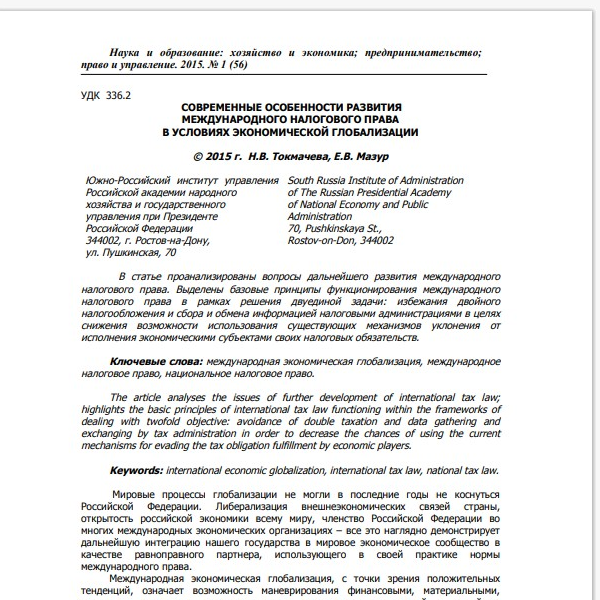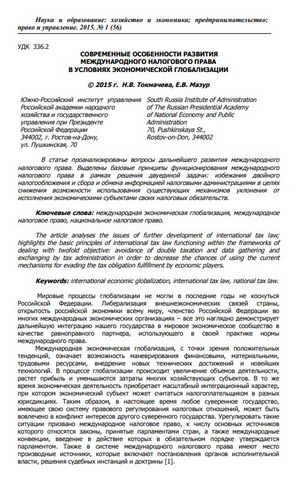Описание
Введение
Цель исследования, представленного в статье, заключается в анализе индивидуальных образовательных траекторий студентов с ограниченными возможностями здоровья и разработке эффективных адаптационных и здоровьесберегающих технологий для их успешной интеграции в образовательный процесс. Актуальность данного исследования обусловлена необходимостью глубокого понимания особенностей и возможностей людей с ограниченными возможностями здоровья, а также важностью оптимизации образовательной среды для их успешной адаптации и формирования профессиональных компетенций.
Методология
В исследовании использовались методы анализа литературы, наблюдения и эмпирического изучения образовательного процесса. Авторы сосредоточились на формировании адаптивной среды, создании условий для вовлечения студентов в учебный процесс и применении здоровьесберегающих технологий. Выбор данных методов обоснован необходимостью учета специфики здоровья студентов и их индивидуальных потребностей.
Основные результаты
Ключевые находки исследования показывают, что эффективные условия для использования адаптационных технологий включают создание поддерживающей образовательной среды, развитие общих учебных навыков и активное вовлечение всех студентов в процесс адаптации. Статистическая значимость результатов подтверждается положительными изменениями в уровне адаптации студентов с ограниченными возможностями здоровья к учебному процессу.
Обсуждение и интерпретация
Авторы интерпретируют результаты как подтверждение необходимости комплексного подхода к обучению студентов с ограниченными возможностями здоровья. Выводы согласуются с предыдущими исследованиями, подчеркивающими важность индивидуализированного подхода и применения здоровьесберегающих технологий. Однако выявлены противоречия с некоторыми традиционными методами обучения, которые не учитывают особенности данной категории студентов.
Заключение
Основные выводы статьи подчеркивают необходимость внедрения адаптационных и здоровьесберегающих технологий в образовательный процесс для повышения уровня интеграции студентов с ограниченными возможностями здоровья. Практическая значимость результатов заключается в возможности применения разработанных технологий в вузах для улучшения качества образования. Ограничения исследования связаны с недостаточной универсальностью предложенных методов для различных категорий студентов. Рекомендации для будущих исследований включают дальнейшее изучение эффективности различных адаптационных стратегий в разных образовательных контекстах.
Ключевые слова и термины
Студенты с ограниченными возможностями здоровья, адаптивная физическая культура, здоровьесберегающие технологии, профессиональная адаптация.
Библиография
Авдиенко, Г.Ю. Влияние мероприятий психологической помощи студентам в начальный период обучения на успешность адаптации к образовательной среде вуза // Вестник психотерапии. – 2007. Антипова, Л.А. Педагогические технологии успешной адаптации личности студента в процессе обучения в вузе // Казанский педагогический журнал. – 2008. Педагогика здоровья: монография / Л.А. Акимова, Е.М. Голикова, Н.В. Сократов, П.П. Тиссен – Оренбург: Типография «Экспресс-печать», 2013.


Отзывы
Отзывов пока нет.